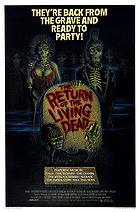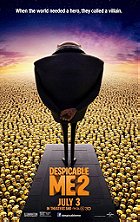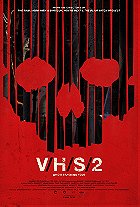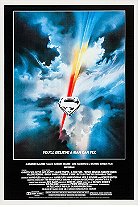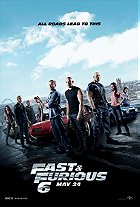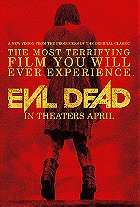The Internship is one of the safest movies to enter cinemas during the 2013 summer season. Here's an inoffensive, PG-13 comedy that abides by the universal formula for these types of endeavours and incorporates practically every cliché you can imagine. Starring Vince Vaughn and Owen Wilson, it's more or less a spiritual sequel to 2005's hugely successful Wedding Crashers, though that film's bold R-rated edge is jettisoned in favour of a more family-friendly tone. While The Internship may be enough to satisfy casual movie-goers due to its pleasant surface sheen, it's rarely laugh-out-loud funny, and its gutless disposition in terms of narrative and humour ensures that you'll forget all about it practically immediately after viewing.

Skilled salesmen Billy (Vince Vaughn) and Nick (Owen Wilson) suddenly find themselves out of work when their company goes under, leaving them to battle an impossible job market without the necessary skills to land them proper work. With options dwindling, Billy decides to register himself and Nick in the Google Internship program, an intense summer immersion test that may result in the pair getting full-time employment with the prestigious corporation in San Francisco. Billy and Nick soon find themselves the outsiders, with their limited computer expertise and advanced age contrasted against the sea of twentysomethings more in tune with modern technology. The "dinosaurs" are put into a team with similar misfits - among them, geeky team manager Lyle (Josh Brener), uptight techie Stuart (Dylan O'Brien), and token Asian kid Yo-Yo (Tobit Raphael) - as they search for confidence while facing disapproval from Google bosses and standoffish intern Graham (Max Minghella). Nick also takes a shining to Australian executive Dana (Rose Byrne), a workaholic who needs to loosen up. Oh yes, that old chestnut is here as well.
Written by Vaughn and Jared Stern (The Watch, Mr. Popper's Penguins), The Internship is one of the most lazily constructed films in recent memory, re-using the "underdogs competing for a spot" formula that was old when it was new. The film offers no surprises in terms of plot points; the two "old guys" struggle, have false wins, experience a major loss that they may not recover from, and ultimately come out on top. And the other interns that Nick and Billy are teamed up with adhere to every stereotype that screenwriters apparently assume audiences still associate with the tech sector. It's as if the script was written in 1996, making it feel instantly outdated. Plus, The Internship sorely lacks bite in the humour department. The team challenges play out like some reality TV show, and nothing imaginative or overly cinematic is done with them. Many of the jokes are cringe-worthy, including a horrendously prolonged scene in which Billy keeps saying "on the line" instead of "online." Wait, so Billy was savvy enough to job search online and figure out how to apply for the internship program online without knowing the proper phrase? In another scene, a joke hinges on the assumption that Billy and Nick aren't familiar with the X-Men character Charles Xavier. Apparently, neither of them has watched television or been to the cinema since 1999, and apparently, comic books are still niche.

The Google-centric setting represents another key issue with The Internship. While it's nice to see a real brand being used instead of an unlicensed sound-alike stand-in, director Shawn Levy treats Google with utmost reverence. Considering their reputation, the movie could've earned laughs by poking fun at what happens behind the doors of this cash factory and even satirised Google. But no, The Internship instead portrays Google as the best place in the world to work, coming across as a recruitment film. Levy shows them to be the equivalent of Willy Wonka's chocolate factory, with free food, nap pods, fun team-building games, slides in the middle of the office, and so on. Google's infamous self-controlled cars are even shown. The company will undoubtedly receive a spike in job applications in the coming months. And outside of Google, the product placement is seriously off the charts; Jibb Jabb gets a look-in, while Match.com and the University of Phoenix are mentioned. The film goes particularly gaga for Google during the end credits, presenting a montage of practically every product known to man. To call The Internship an infomercial would be an understatement.
To their credit, Vaughn and Wilson are a pleasing pair. They both play their typecast personas (Vaughn being outspoken and fast-talking, while Wilson is more soft-spoken and eager to please), but they play their roles confidently and remain watchable throughout. In fact, Vaughn and Wilson keep the film afloat during its worst patches. Meanwhile, Rose Byrne (I Give it a Year) is fairly decent as Wilson's love interest; it's a perfunctory role, but Byrne is endearing. As to be expected from a film like this, there are a few cameos from well-known stars that are too delicious to spoil.

The Internship should have been Old School on the Google campus, but instead, it's just a generic comedy that is not about to amaze anyone. Nevertheless, it is a lot of fun to watch, terrible jokes notwithstanding. It runs almost two hours, but it goes down surprisingly easily despite its length and conventional nature, which is a credit to Levy's good-natured handling of the script. The film is at least amiable enough to avoid provoking outright fist-clenched anger. Don't mistake that for a hearty recommendation, though; it's still wholly middle-of-the-road and desperately needs more laughs. There are better comedies out there.
5.8/10
 Login
Login
 Home
Home 183 Lists
183 Lists 1668 Reviews
1668 Reviews Collections
Collections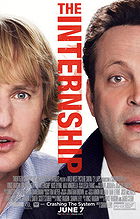
 0 comments,
0 comments, 